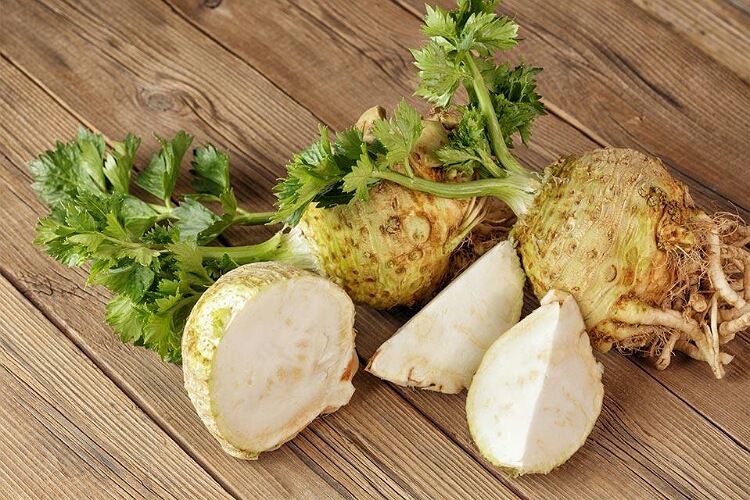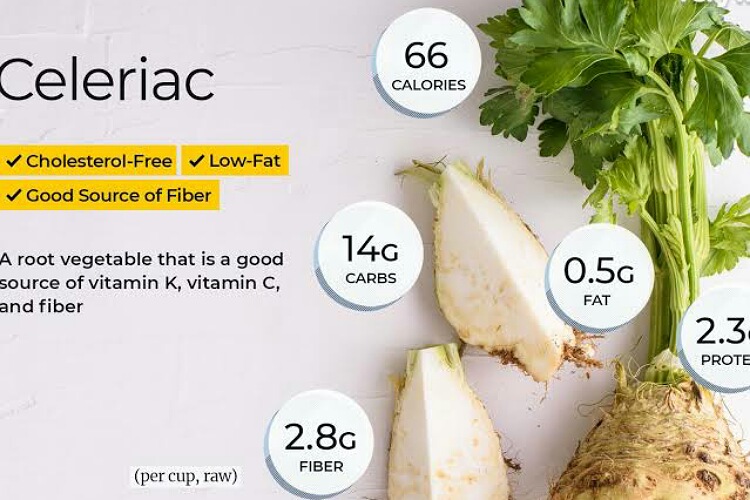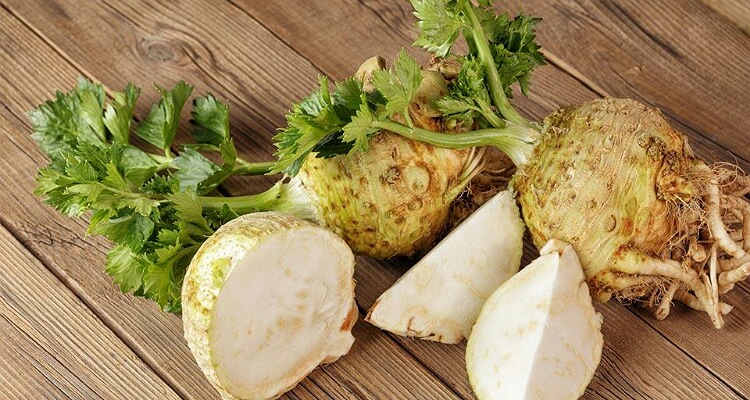We all know celery that we use to garnish foods. But do you know that its roots are also edible? Celery root is the bulbous root of a specific variety of celery plant. It has a lot of health benefits and nutritional value!
Celery root: history and uses
Celery root has other names namely celeriac, knob celery and turnip-rooted celery. Unlike celery leaves, it does not look all that attractive and pleasant. But it has a lot of nutrients and health benefits packed in it. The taste is like a cross between celery and potato and is mild. It is bulbous with a rough outer skin and inner white flesh. As long back as in 800 BC people used it for religious and medicinal purposes. There were claims that it works like an aphrodisiac.

The scientific name of this root vegetable is Apium graveolens var. rapaceum. It is extensive in Northern Europe and in the Mediterranean basin. The origin is in the Mediterranean region. Parts of North Africa, Southwest Asia, Siberia and North America also cultivate it. It contains phytochemical called apigenin that Chinese traditional healers used for anti-inflammation. For culinary use, people consume it either raw or cooked. It is stewed, roasted, blanched or mashed. One can add it to souls, casseroles, or other food dishes.
What is its nutritional value?
This root is low in calories. 100 grams has 42 calories. Carbs are 9.2 grams while sugars are 1.6 grams. Dietary fiber is 1.8 grams. The protein content is 1.5 grams and fats are just 0.3 grams. Cholesterol is zero. And water content is 88 grams.

It has other minerals, vitamins, and antioxidants. There is vitamin B1, B2, B3, B5, B6, vitamin C and vitamin K. Nearly one-third of the daily requirements of vitamin K are met with consumption of 100 grams of this root. Moreover, this root has lots of calcium, iron, manganese, magnesium, phosphorus, potassium, and zinc. Sodium is 100 mg in 100 grams of the root. Therefore, it is good even for people with high blood pressure.
Health benefits
Why should one consume this root vegetable? It is a great source of vital vitamins such as C, B, and K. These aid in wound healing, energy metabolism, gums health, and clotting process of the body. Vitamin C also helps absorption of iron and prevention of anemia. It prevents colds and boosts immunity. The root is rich in phytochemicals that act as antioxidants to overcome the oxidative stress that creates inflammation and cell damage. The oxidative stress causes chronic diseases and cancer.

Read also: North Yorkshire to implement a new cost-effective program to control obesity in local kids!
The root is excellent for gut and heart health. The reason is its high content of dietary fiber that regulates bowel movements and prevents constipation. The potassium relaxes blood vessels and reduces blood pressure readings. Other minerals like calcium, magnesium, phosphorus are vital for bone and teeth health, for muscle function and for nerves. The low calories helps in keeping the waistline low and in the prevention of obesity.
